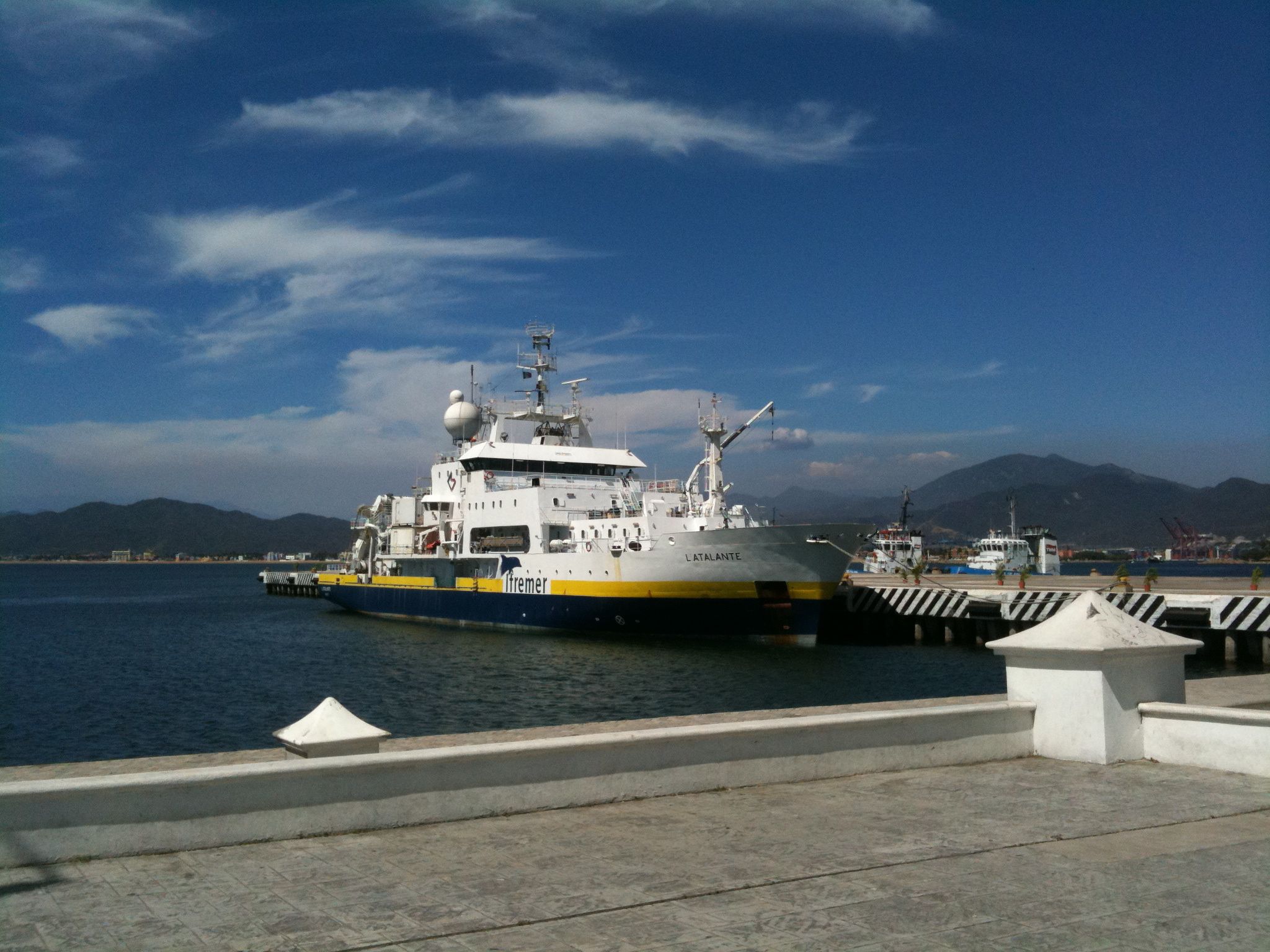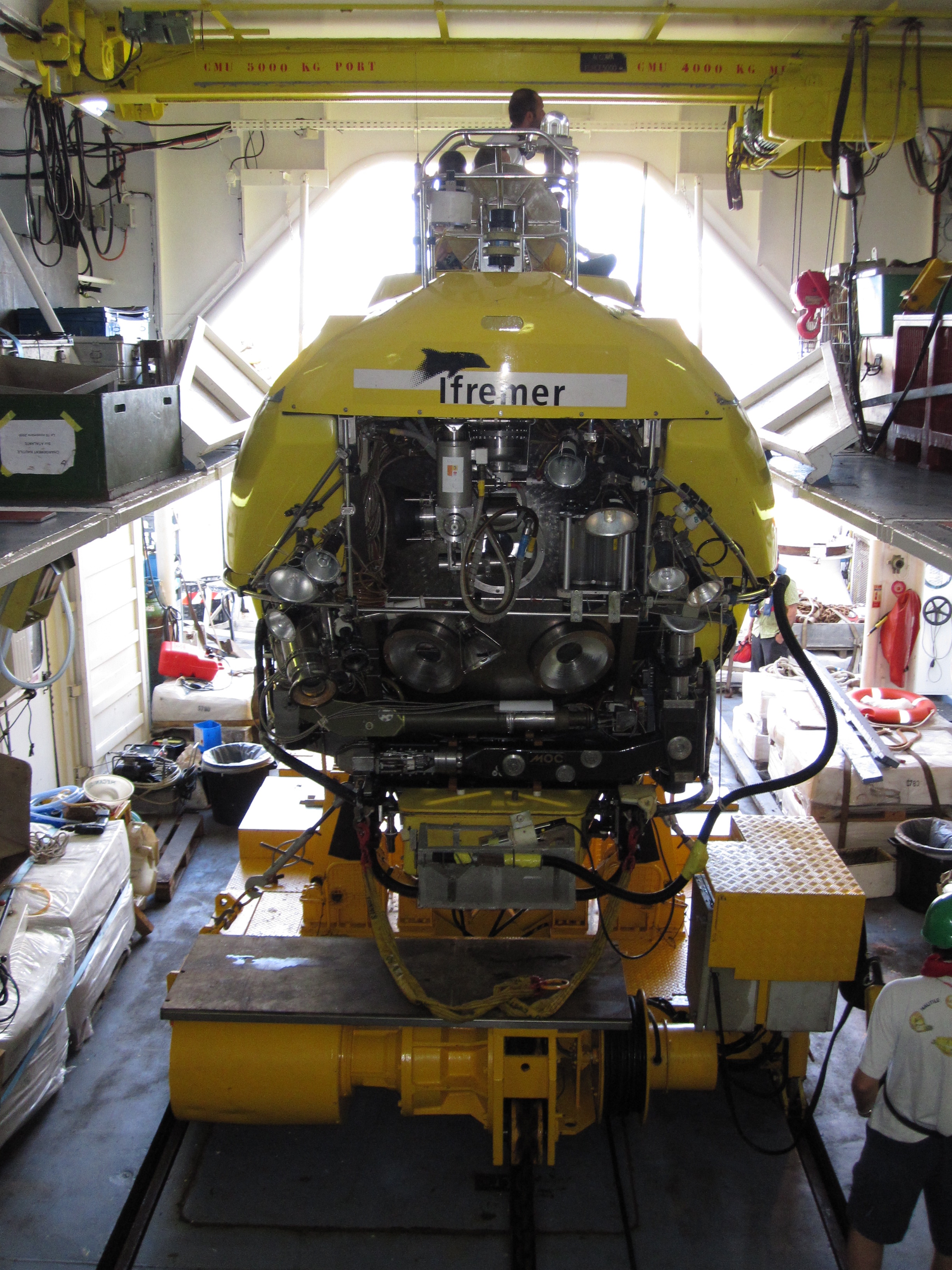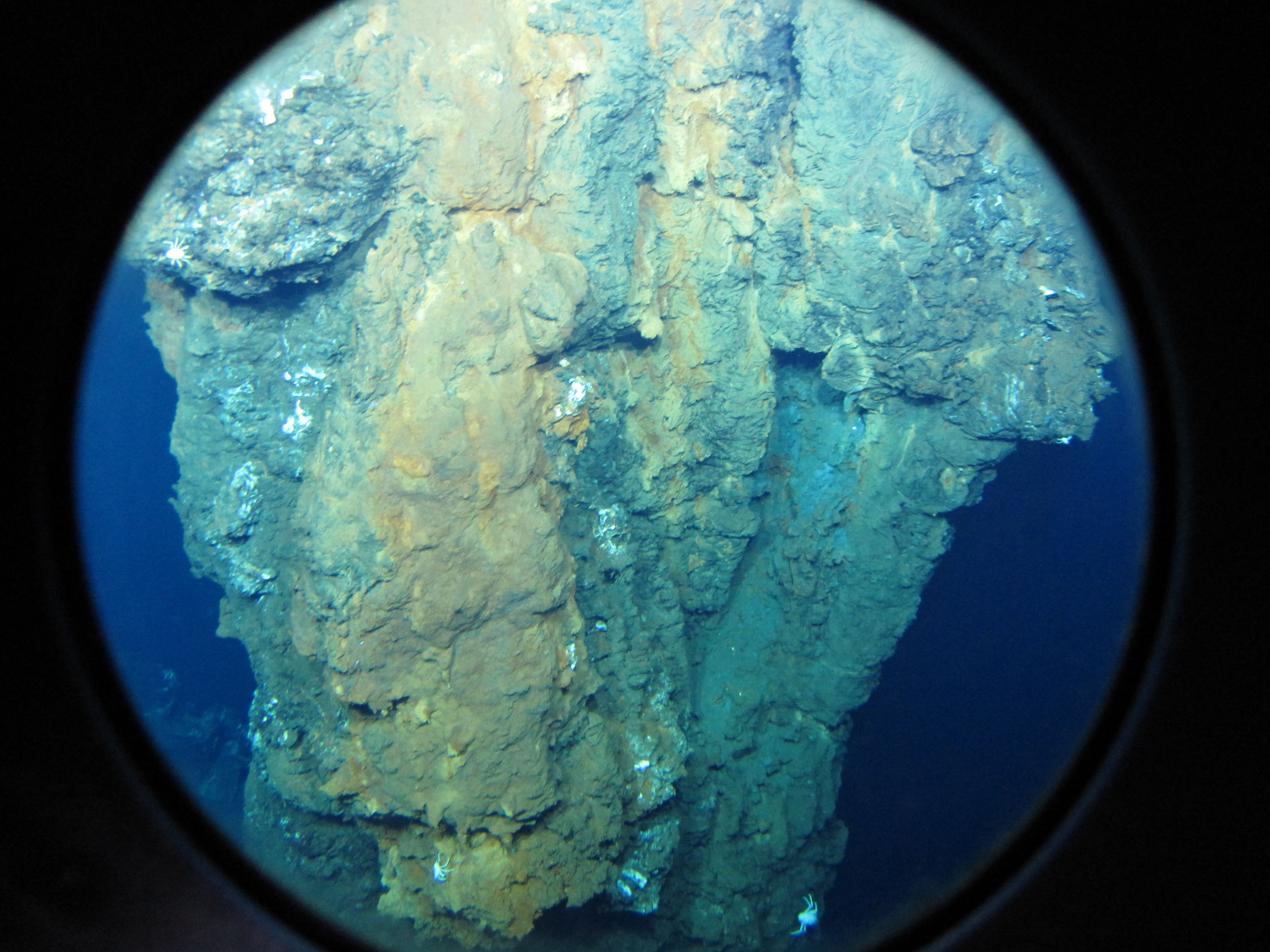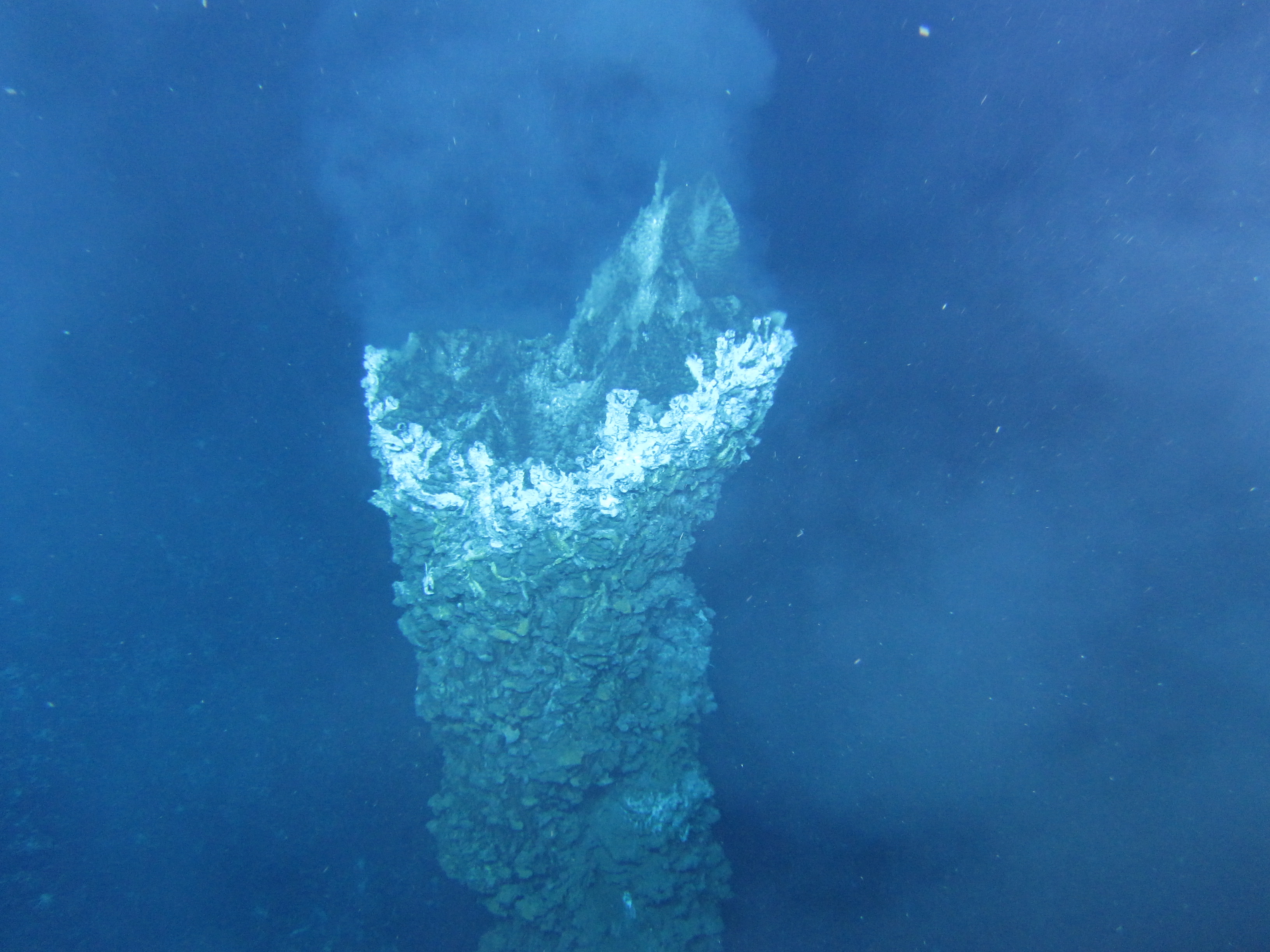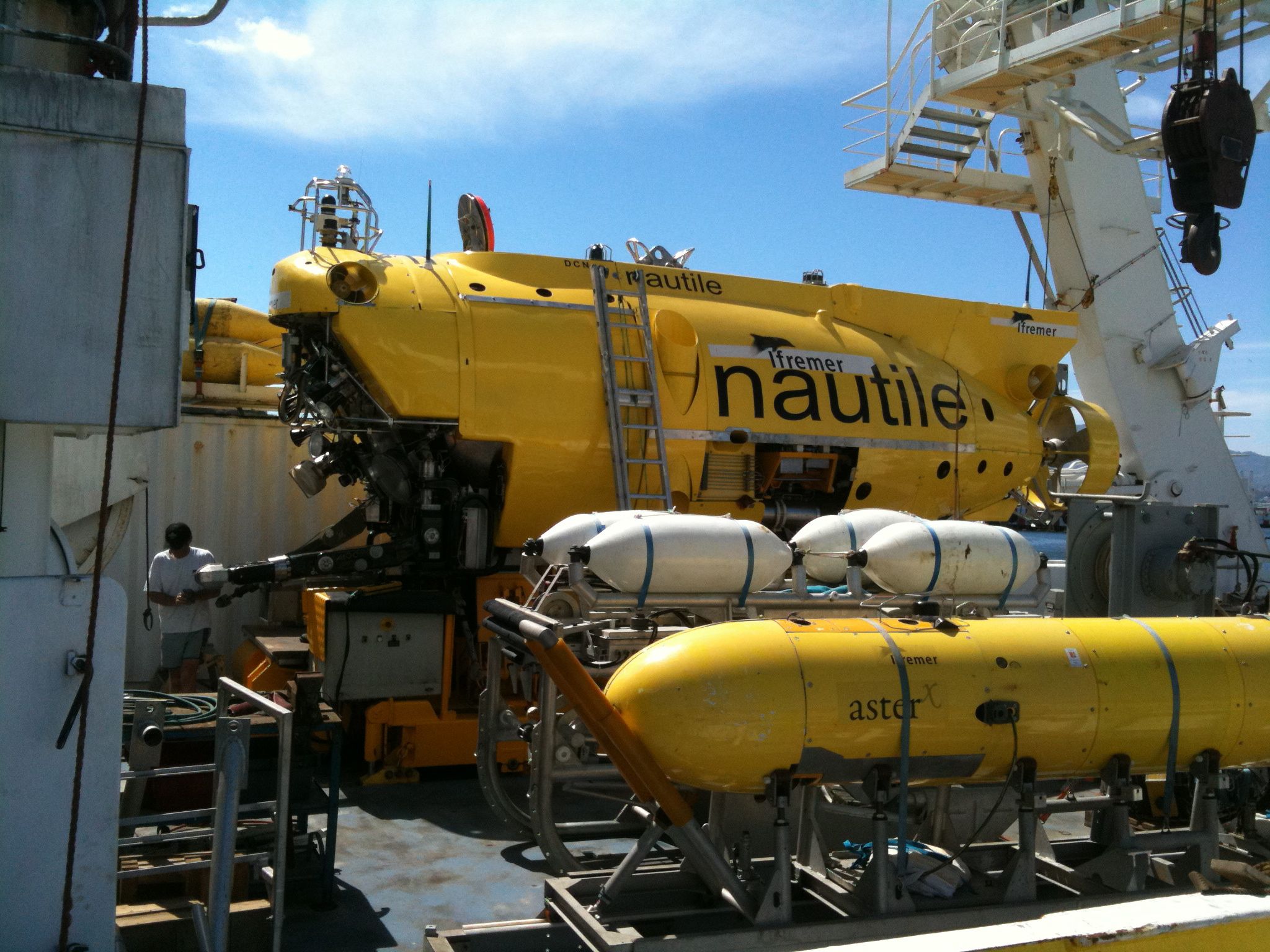MESCAL: Exploring the deep-sea vents with the French deep-submergence vehicle Nautile
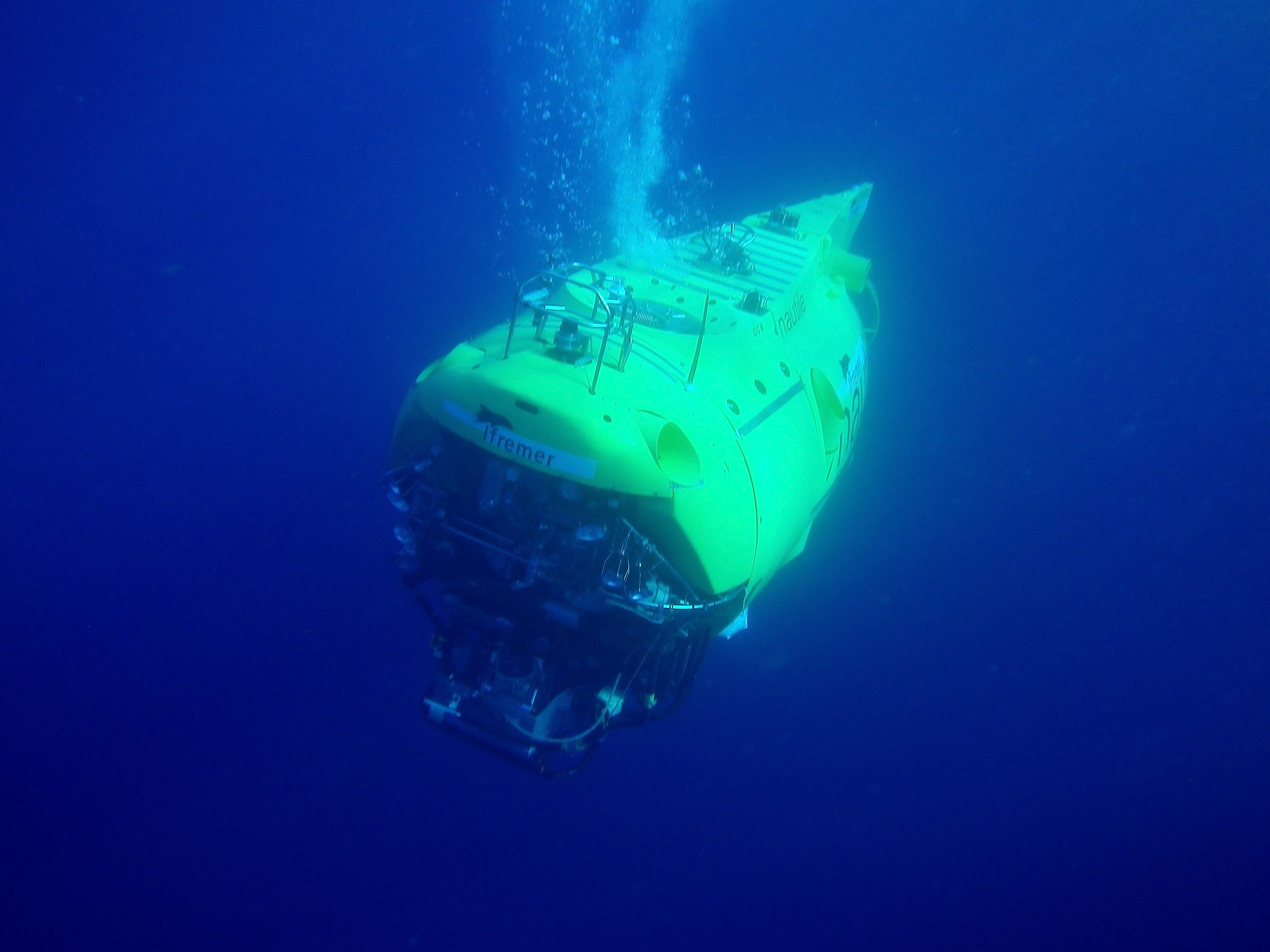
In 2010 and 2012 Costantino Vetriani and other members of the Deep-Sea Microbiology Lab were invited to participate in two French oceanographic expeditions by chief scientist and collaborator, Dr. Nadine Le Bris. MESCAL is an acronym for "Milieux Extremes: Stratégies de Colonisation et d'Adaptation en environmement hydrothermaL" (“extreme habitats: colonization and adaptation strategies in hydrothermal environments”). The French research vessel L'Atalante, along with the deep-submergence vehicle Nautile, sailed from Manzanillo, Mexico, and headed for the deep-sea hydrothermal vents located at 13°N and 9°N on the East Pacific Rise. The MESCAL expeditions focused on two themes: the colonization strategies and adaptation to thermal and chemical stresses of vent invertebrates on active polymetallic sulfide structures (also know as black smokers or chimneys), and the biology of invertebrate-bacteria symbioses.
The goal of the Deep-Sea Microbiology lab was to investigate the role played by chemosynthetic microbial biofilms in the colonization of deep-sea vents. Published scientific papers from the MESCAL cruises include the characterization of a novel species of chemosynthetic Epsilonproteobacterium, Sulfurovum rifitae (doi: 10.1099/ijsem.0.001106. ) and, in a project led by Dr. Aurelie Tasiemski, the discovery of the first antibiotic from a vent invertebrate (doi:10.1371/journal.pone.0095737).

